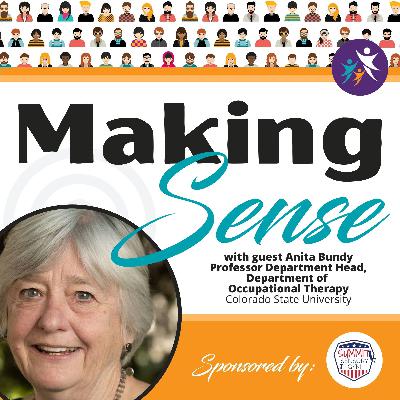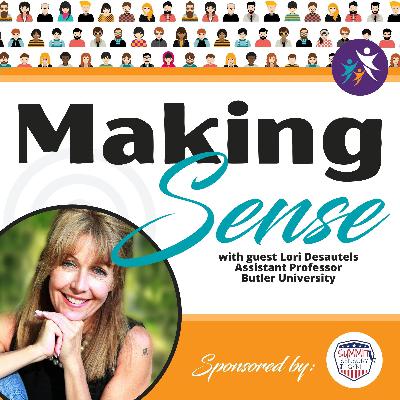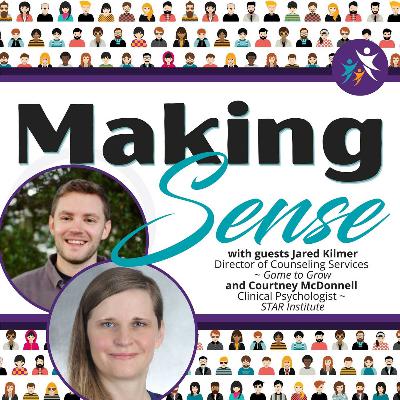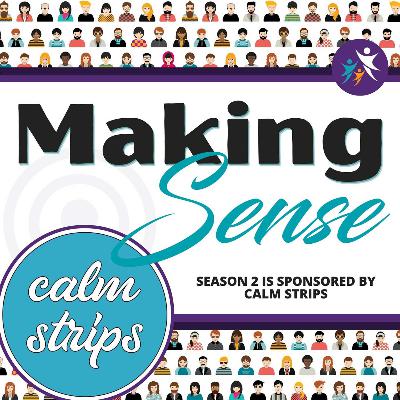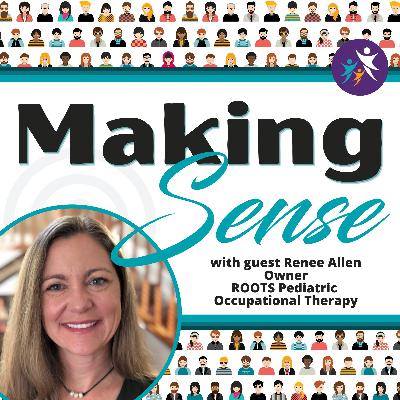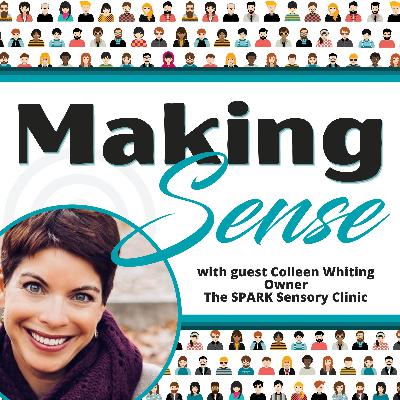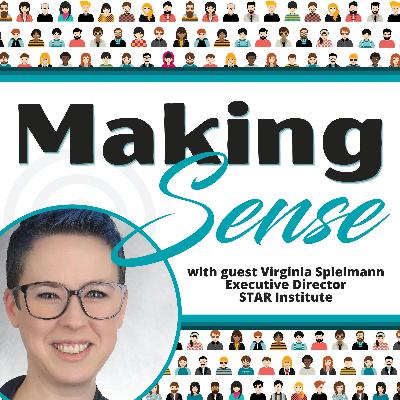The Role of Occupational Therapy in Trauma Informed and Responsive Care: An OT’s Personal Story
Description
According to the Administration for Children and Families (n.d.), nearly 500,000 children and youth are currently in the foster care system in the United States. Caregivers and professionals who work with children in the foster care system must have an understanding of and tools to provide trauma-responsive and trauma-informed care. Listen as occupational therapist and foster parent, Rachel Ashcraft, shares her personal and professional path to providing this care.
Episode Guest: Rachel Ashcraft, MS, OTR/L
The views expressed in the following presentation are those of the presenter(s) and do not necessarily reflect those of STAR Institute.
Resources Mentioned In this episode:
- University of Alabama, Birmingham Department of Occupational Therapy: https://www.uab.edu/shp/ot/
- Rachel’s non-profit: Foster the Future Alabama: https://www.fosterthefuturealabama.org/
- STAR Education: https://sensoryhealth.org/landing-page/education
- Trust Based Relational Intervention ™ https://child.tcu.edu/about-us/tbri/#sthash.STk9qfIR.dpbs
- Occupational Therapy Practice Framework: https://research.aota.org/ajot/article-abstract/74/Supplement_2/7412410010p1/8382/Occupational-Therapy-Practice-Framework-Domain-and?redirectedFrom=fulltext
- Dr. Deb Hinerfeld: https://debihinerfeld.com/curriculum-vitae/
- Dr. Amy Lynch: https://cph.temple.edu/about/faculty-staff/amy-k-lynch-tuf83028
- Drs. Ryan Lavalley and Khalilah Johnson’s podcast: https://podcasts.apple.com/us/podcast/dr-thots/id1557659719
- Dr. Alaa Abou-Arab: https://www.linkedin.com/in/alaaabou-arab/
- Disrupt OT: https://www.disruptot.org/
- Resmaa Menakem: https://www.resmaa.com/
- SAMHSA Principles of Trauma Informed Care: https://www.samhsa.gov/sites/default/files/programs_campaigns/childrens_mental_health/atc-whitepaper-040616.pdf
- Making Sense Podcast on Anti-black racism in the Autism Pathway: https://podcasts.apple.com/us/podcast/5-concrete-action-steps-for-clinicians-t o-take-in-response/id1559608909?i=1000551993824
What Happened to you by Dr. Bruce Perry & Oprah: https://www.bdperry.com/ - The Neurosequentail Model of Therapeutics (NMT) by Dr. Bruce Perry: https://www.bdperry.com/clincal-work
Episode transcript:
Carrie Schmitt
Join Today by Rachel Ashcraft, she's an occupational therapist and assistant professor at the University of Alabama, Birmingham. Thanks for being here today. Could you tell everyone a little bit about yourself? Hey, everyone,
Rachel Ashcraft
I'm so excited to be here. I'm Rachel, I'm assistant professor, as she said, at the University of Alabama in Birmingham. And my main focus and work that I do is within the realm of trauma responsive and trauma informed practices, and then really looking at what that means for us in the occupational therapy world and kind of how to take that lens and put it to what we do.
Carrie Schmitt
In your personal story, you were an occupational therapist practicing in pediatrics. And then you and your husband made a decision that took you down the road of getting interested in this trauma informed and trauma responsive work, do you mind sharing a little bit about.
Rachel Ashcraft
I love to Yeah, so I was a fairly new practitioner, and I was working in a pediatric outpatient clinic with a sensory focus. And just doing the day to day regular work, they're learning how to be a new clinician, you know, just kind of learning the ropes of everything, when my husband and I became aware of a really big need in our community within our foster care system. So we have learned that a lot of the kids in our county, we're not even having homes to go to. So I think at one point, it was like, there was maybe over 400 kids in care and just our specific county and like less than 40 homes, for them to even potentially go to, and most of those were full. And so kids were really ending up in places that were not ideal, just because there's nowhere for them to go. And so we've really felt kind of a burden of injustice just in the sense that we did have capacity to open our home up to open our family up to to take in not just these kids, but also to partner with their families, in the hopes of them being able to be reunified, because that's really the goal of foster care is for the children and the family to be able to stay together. And so we really felt like that was something that we could do. And so each day that we weren't doing this thing that we knew that we could do just really started to feel really like we were doing an injustice in our community by not showing up for that for that group. And so that's what happened, we became foster parents. And as that was happening, we had in the span of five years, we've had 24 Kids come through our house, as infants all the way through 17. So it was just a really kind of different way to enter that experience. Just even in just like, my season of life just being where I was kind of late 20s started my career. And now I'm trying to figure out how to help these kids and these families. What I felt like I noticed was that kids were coming into my home that were unable to do things that I expected them to be able to do that. Not that they should have based on their life experiences, but my lens, I was expecting them to be able to do things that they really wasn't a fair ask for them. So things like I distinctly remember, a child that couldn't had no idea how to take a shower. And so and they're really too old for me to be in there with them. Right? So trying to figure out how do I help this child learn how to take a shower in a way that's appropriate, but also honors, whatever experiences they've had that have been harmful and traumatic surrounding that space, you know, in their life. And just, all these different occupations were happening. And I was thinking these kids just don't, aren't getting help, you know, for what they need. And I wasn't even thinking of it from a really sensory health lens, or trauma informed lens. Like I really didn't even know enough at the time to be to be thinking that way. I was just thinking. I'm in a profession that helps people learn how to do the things they want me to do. And here's a group of kids that has no opportunity to do the things they want me to do. And that is wrong. And I really just started feeling like the same sense of kind of injustice about our profession, that we weren't stepping up for this group of kids and these families in our culture. In the same way. We my husband and I were feeling you know, we're really doing an injustice. If we don't step up for these kids and bring them into our home. I started feeling that same like professional injustice of why are we as occupational therapy practitioners, not showing up for these kids and not really kind of seeing what we need to do to help them be able to participate. And so that kind of started me down this path, where as I learned more i I was able to understand what the barriers were in the foster care system and started trying to figure out how to eliminate some of those barriers that ended up in me creating a nonprofit actually, with the mission of reducing systemic injustice and access to care that kids in Alabama's foster system experience. But it also ended up in me doing things like going to the star mentorship program and learning more about sensory health, you know, and then as I did that, I was able to bring that back to the kids I was working with and think about, oh, gosh, like, I've learned all these, like subtypes and all this stuff about sensory health from starts to two. And now I'm seeing these very specific expressions of those patterns, but in ways that have to be really gently met in a trauma informed way, so that we're not harming these kids. And so that we're really valuing safe relationship and everything we do, which I know is what you know, the star model does already. So that started to be a really good fit for me. And then I started learning more about trauma informed models and got trained in trust based relational intervention, you know, and started really bringing that perspective to what I was doing. And then what happened is I started realizing like, it's not just the foster care community, but it's trauma is this whole bigger conversation that actually impacts all of us. And it impacts at these individual levels, but also all the way systemically.


